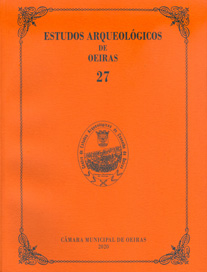Los celtas en la península ibérica: una perspectiva actual
Palavras-chave:
Celts, Portugal, Iberia, Historiography, EthnogenesisResumo
Historiographical approach to the study of the Celts in Portugal, with special attention to the contributions of archeology and linguistics in the 20th century and to the new data on genetics and paleoethnology in the 21st century, in which popular traditions are essential, including literature. Celts are defined from their components as an ethno‑culture: material culture, economy, society, political structure, language, anthropology, religion, etc., and its diachronic and geographical changes, in addition to interaction with other ethnic groups in a continuous process of ethnogenesis.
From this perspective, the origin of the Celts in the Iberian Peninsula is analyzed. Recent genetic and linguistic data indicate that they come from a bell‑beaker substrate from which the Atlantic Bronze derives. On this “Proto‑Celtic” substrate of the Atlantic Bronze Age expanded new elements from the Urnfields Culture, from which derive the Celtiberian peoples. This long process explains the diversity of the Celtic peoples in Iberia as a result of a complex ethnogenesis, which ends with the Roman Conquest.
Downloads
Publicado
Como Citar
Edição
Secção
Licença
Os artigos publicados são da exclusiva responsabilidade dos Autores.
É expressamente proibida a reprodução de quaisquer imagens sobre as quais
existam direitos de autor sem o prévio consentimento dos signatários dos artigos
respectivos.




